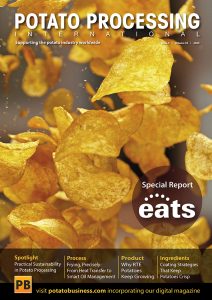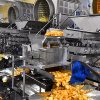Farmers in Uzbekistan learn how to improve productivity and save water

Two international organizations lead projects for Uzbekistan scientists and farmers to improve potato productivity and water saving.
The researcher from IWMI, an international water think-tank, and CIP, an international potato research organization, conducted two training courses in Andijan and Fergana regions on 8-9 September 2014, according to a press release.
More than 50 farmers and specialists attended the courses. What is more, 25 per cent of he participants in Andijan Region were women farmers.
One of the projects is “Improved potato varieties and water management technologies to enhance water use efficiency, resilience, cost-effectiveness, and productivity of smallholder farms in stress-prone Central Asian environments”. This project is aimed at increasing potato productivity and competitiveness, and family income of resource-poor farmers in stress-prone areas of Central Asia, specifically in Uzbekistan and Tajikistan. It is funded by the German development cooperation instrument of BMZ/GIZ and was launched in 2012.
Under this project, IWMI and CIP researchers train local farmers and agronomists in best potato cultivation and irrigation practices. Based on the project results so far, they have also developed a list of guidelines for farmers. Local scientists show a strong interest in drought-tolerant potato varieties and water-saving technologies and farmers are willing to take up solutions to cultivate potato with reduced water supply, and use early potato varieties, which are tolerant of drought and high temperatures.
Participants were briefed on theory and practice of potato cultivation and irrigation, they also learnt about methods of measuring soil moisture content using different techniques, potato irrigation, water measurement devices etc.
Project team members also showed farmers the advantages of water-saving methods like drip irrigation, alternate furrow irrigation and high-frequency irrigation.
The project team hopes that its recommendations will help potato growers to contribute to sustainable use of water on farms and also improve their potato production.
Potato cultivation is a source of livelihood
The crop comes third after wheat and rice in the country. The annual per capita consumption rate is estimated to be, on average, 45 kg.
According to Food and Agriculture Organization of the United Nations (FAOSTAT) (2011), potato was grown in an area of 73,100 ha in 2011. The Ministry of Agriculture and Water Resources of Uzbekistan reckons that the country should increase potato production to meet local demand fully.
Worries over water availability bring into question the possibility of increased production. And this raises the priority of producing more with less input, including water. Researchers argue that if stress-tolerant varieties are cultivated and water-saving technologies used, smallholders can increase potato yields by 40 per cent. So indeed farmers are looking for and testing new methods of irrigation and new varieties of potato to improve productivity.















